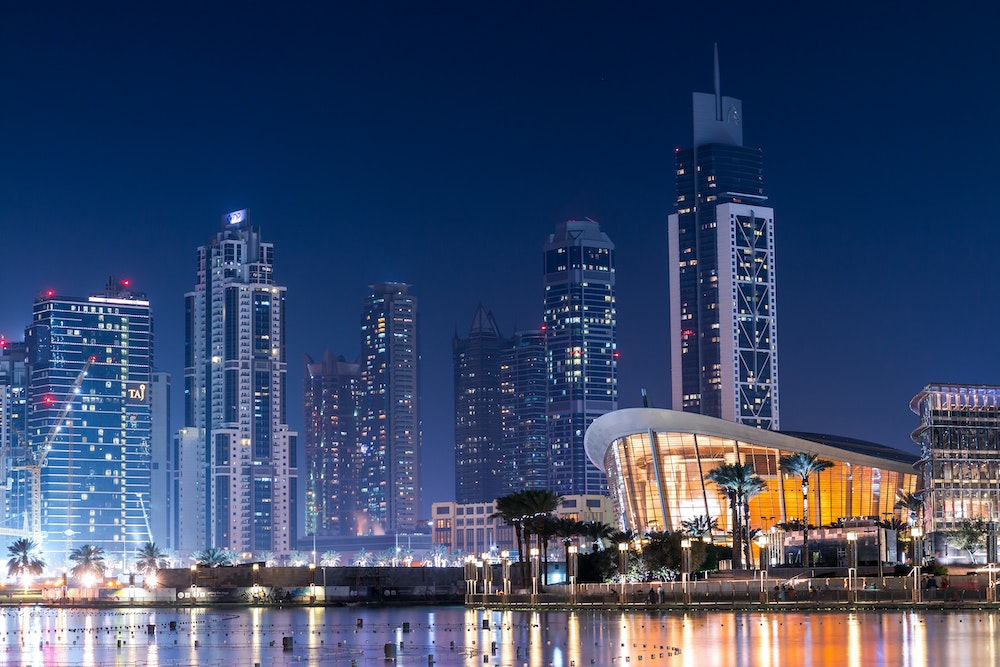
Starting from 1st. of January 2018 and in line with other GCC countries, the UAE is to implement a Value Added Tax (VAT) amounting to 5% on most goods and services.
This article is therefore aiming to highlight the regulations as far as they are relevant to a real estate investor and to identify possible repercussions that the changes hold for the market`s future evolution. Being an indirect tax on certain goods and services, Law No (8) of 2017, issued by Federal Decree in September 2017, defines the goods to be imposed with VAT as follows:
„The VAT Law has identified Goods to include physical property that can be supplied including real estate, water and all forms of energy as specified in the Executive Regulations to the VAT Law.“
However, although generally included, the law subsequently details the VAT treatment specifics subject to different property usage types and other specifics.
An English translation of the law, also referred to as the „VAT Law“, can be found here: Law No (8) of 2017.
Residential Property: Zero Rated vs. Exempt
Article 45 of the law enlists goods and services which are subject to a „zero rate“ and includes residential buildings within three years of their completion, „either trough sale or lease in whole or in part…“ This holds true also with respect to properties that have been converted from a commercial to residential use.
Also noteworthy is the fact that the law does not make a distinction as to whether the residential property is supplied to a natural person or a business entity.
Article 46 mentions transactions that entail the application of a tax exemption. Exempt are – within the property context – the supply of bare land as well as all other supplies of residential buildings through sale or lease that do not qualify for the zero rating as stipulated by article 45 („zero rating“).
The rationale of the zero rating in this instance is that property developers can reclaim output VAT on their respective third-party factor input. That said, an absence of the zero rating provision would otherwise have led to a substantial increase of development cost, ultimately being charged to the end user.
Commercial Property
Conversely, the supply of commercial property and proceeds from leases fall under the scope of VAT taxation. This implies that a developer selling commercial property will be able to offset input tax paid on building materials as well as third-party services including consulting, architecture and the like.
If the value of an acquired (commercial) property exceeds 5m AED it qualifies as a „capital asset“ as per the executive regulations, leading to an even distribution of the input VAT over the term considered as the asset`s useful lifetime (10 years in case of a property).
From an investor`s perspective, this treatment implies a somewhat increased capital lockup compared to jurisdictions in which a full input VAT reclaim is possible within the accounting year of acquisition. However, a full recovery of the initially incurred VAT amount is nevertheless foreseen through ongoing offsetting of input (i.e. related maintenance) and output VAT (i.e. from leases) throughout the property´s term of usage.
Transfer of a Going Concern
In the specific case of commercial properties being transferred as part of a business or representing a business in their own right, the transaction might qualify as „Transfer of a Going Concern“, leading to the non-application of VAT with respect to the purchase price.
As a general rule, in order to qualify for such a classification, the management of the properties and their leases – prior to as well as after the transaction – must evidence a persistent business operation.
Freezones
With the UAE freezones generally stressing their tax free business proposition, some observers had expected the legislator to spare the UAE freezones from the scope of VAT imposition.
However, as per the VAT Law and its subsequently published executive regulation, only so-called „designated zones“ will potentially qualify to be exempt from VAT. As per the executive regulation, granting of such status will be subject to a cabinet resolution under the condition that physical fencing of the freezone and comprehensive customs controls over the movement of goods are in place.
From an isolated VAT point-of-view it is therefore now evident that utilizing UAE freezones as vehicles for real estate investments generates neither an advantage nor disadvantage for the investor.
Conclusion
From a liability point of view, the law clearly passes the accountability for tax returns to the supplier, being the seller or landlord.
This implies that from 01.01.2018 onwards, sellers and landlords of commercial properties will have to make sure to include pertinent clauses in their sale as well as their lease contracts, clarifying that the stated sale or lease price is expressed excluding VAT. Failure to do so will effectively lead to a diminishing of returns by the surrendered 5%.
With the imposed VAT rate set at 5%, zero rating of residential property supply and the feasibility to recover input VAT on commercial properties through the „Capital Assets Scheme“, the impact of VAT imposition on the property market should be very limited, if any.
